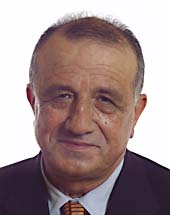Caucasus Elections Watch has interviewed Evgeni Kirilov MEP, Rapporteur of the European Parliament on developing a strategy for the South Caucasus and asked him for his views on the current election trends in the South Caucasus.
 CEW: This month we have seen the start of an election cycle in the South Caucasus, with important elections in all the three countries scheduled over the next two years. What are the expectations of the European Parliament from this process?
CEW: This month we have seen the start of an election cycle in the South Caucasus, with important elections in all the three countries scheduled over the next two years. What are the expectations of the European Parliament from this process?
E. Kirilov: The European Parliament has always followed very closely the democratisation processes in all the three South Caucasus countries. A special focus is given particularly on the electoral process as a corner-stone of any functioning democratic system. Therefore the European Parliament expects from its three partners in the region to continue with the democratic reforms and to ensure that the forthcoming important elections in the next three years will respond to the European standards and will be free, fair and transparent. More…




